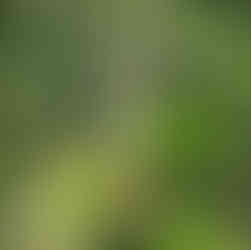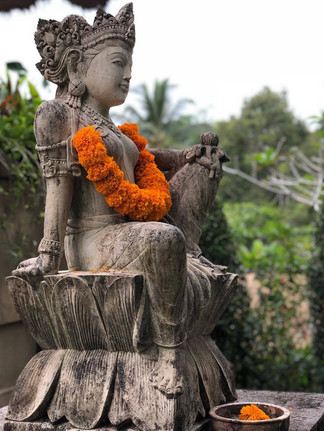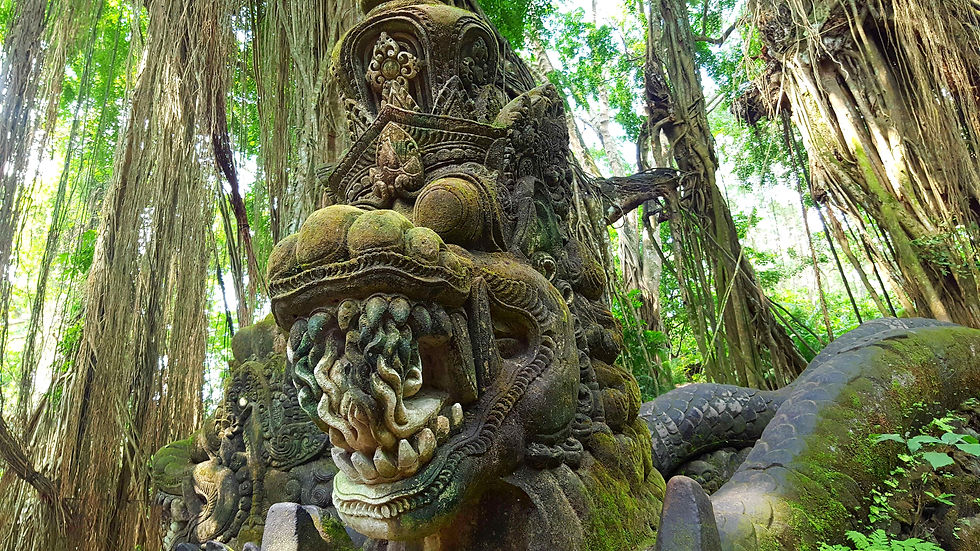Dewi Danu and Dewi Sri – The Sacred Sisters of Bali
- Shannon
- Sep 9, 2025
- 3 min read
Updated: Oct 8, 2025
Exploring the Divine Forces Behind Bali’s Water and Rice Rituals
High on the mist-drenched slopes of Mount Batur, the sacred crater lake known as Danau Batur is believed to be the earthly dwelling of Dewi Danu, the goddess of water, rivers and lakes. Her presence is not abstract, it is palpable in the cool vapour rising from the caldera and the ritual waters that flow from her springs to irrigate Bali’s ancient subak system. These water temples, strategically placed across the landscape, are not just infrastructure, they are shrines to her essence, connecting farmers, priests and ancestors in a continuous, sacred circuit of fertility and sustenance.
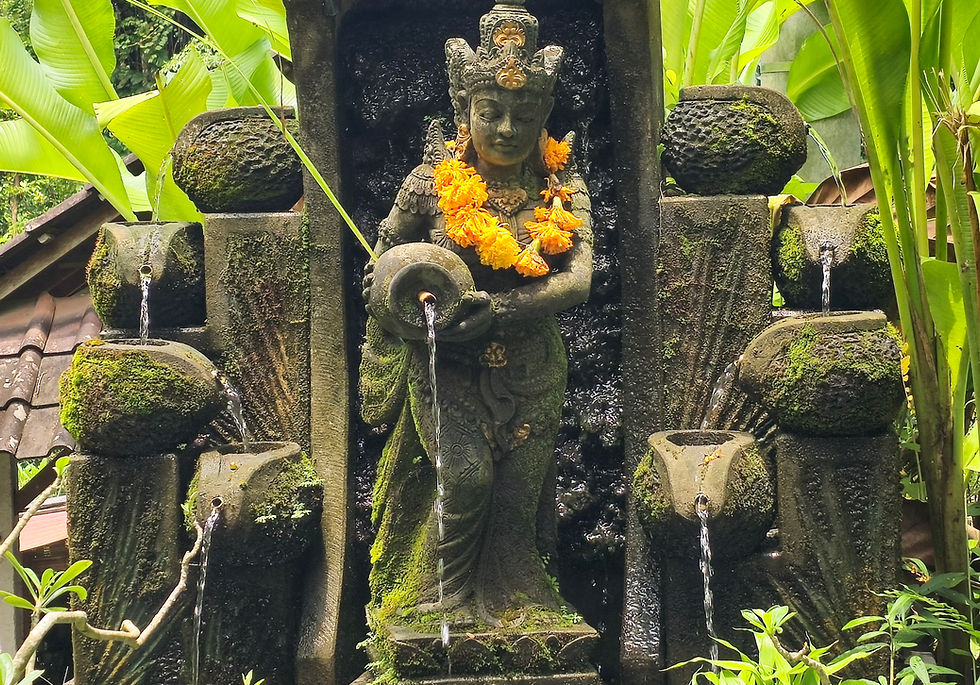
The Goddess of the Fields
Dewi Sri, meanwhile, rules over the fertile lowlands, embodying rice, life and the silent rhythm of harvest. She is not a distant deity but a constant companion, her spirit housed in intricately woven effigies made from rice stalks, lovingly crafted and placed in the paddies. At harvest, the Balinese do not cut rice at random, they harvest in silence, heads bowed, beginning with the mother stalk, believed to be Dewi Sri herself, so she may retreat undisturbed before the field is stripped bare.
A Ritual Path Carved by Water and Grain
Though Dewi Danu and Dewi Sri occupy distinct realms, mountain and lowland, water and grain, their roles converge within the subak system, Bali’s sacred agricultural order. Water from Dewi Danu’s lakes flows through a network of canals, feeding the rice fields presided over by Dewi Sri. Each temple along this system is a spiritual checkpoint, where rituals to both goddesses are performed to ensure the seamless transition from potential to harvest in a cosmic dialogue of water and seed.

The Fragile Equilibrium
The balance between these two forces is never taken for granted. In times of drought, rituals intensify at Pura Ulun Danu Batur, Dewi Danu’s primary temple, as priests entreat her to release her waters. In parallel, ceremonies for Dewi Sri include offerings of coloured rice, betel leaves and coins, gifts intended to maintain her favour and ensure she returns with the next season. If one goddess is neglected, the other suffers and with them, so do the people. Theirs is a mutual reign, encoded in water’s journey from summit to root.
Two Faces of the Sacred Feminine
The mysterious connection between Dewi Danu and Dewi Sri extends beyond the physical world. Some oral traditions whisper that they are fragments of the same cosmic feminine force, one split across altitudes and elements. Dewi Danu is often envisioned as veiled in blue mist, cloaked in secrecy, while Dewi Sri appears as golden light among the stalks, soft and serene. Together, they represent the visible and invisible threads of fertility. One Goddess governs the flow and the other, the bloom.
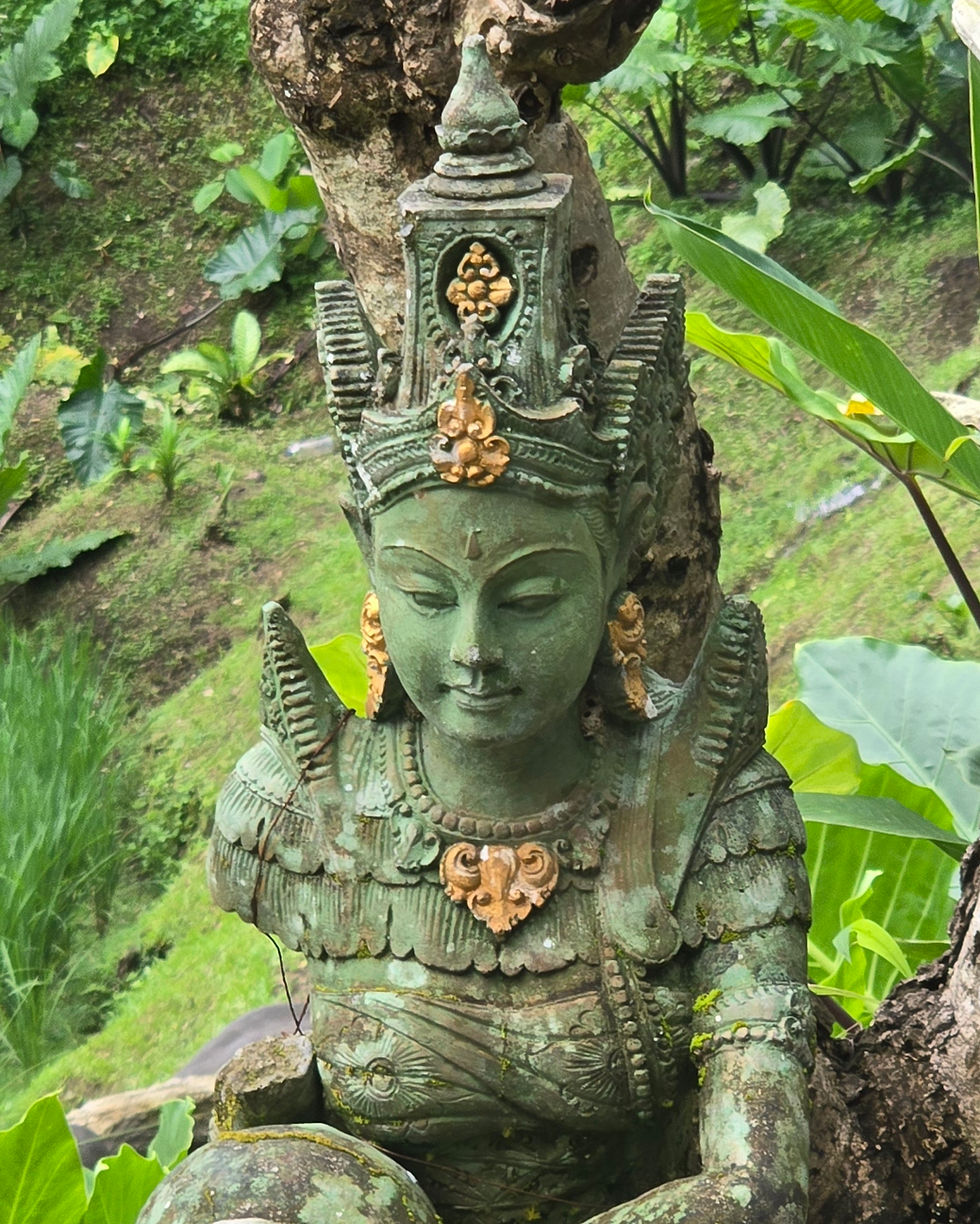
Planting the Divine
In certain Balinese villages, effigies of Dewi Sri are ritually buried at the edge of rice fields just before planting, a symbolic return of her body to the earth. Simultaneously, priests climb to highland temples to request blessings from Dewi Danu, petitioning for her waters to awaken the sleeping seeds below. These acts are not just agricultural, they are acts of resurrection, choreographed to ensure that divine bodies circulate through earth, water and grain.
The Delicate Balance of Life
It said that when balance between these two forces is broken, when water is hoarded or the land exploited, their wrath is subtle but inescapable. Crops fail not just from nature’s whim but from spiritual offense. Dreams darken and fields turn silent. In the Balinese worldview, Dewi Danu and Dewi Sri are not deities of legend, they are forces seen and felt daily, shaping not just the land but the very structure of time, life and death.

Thanks for reading about Dewi Danu and Dewi Sri – The Sacred Sisters of Bali. Check out more awesome legends here!
Dewi Danu and Dewi Sri are revered as the sacred sisters of Bali, embodying the island’s divine balance of water and rice


